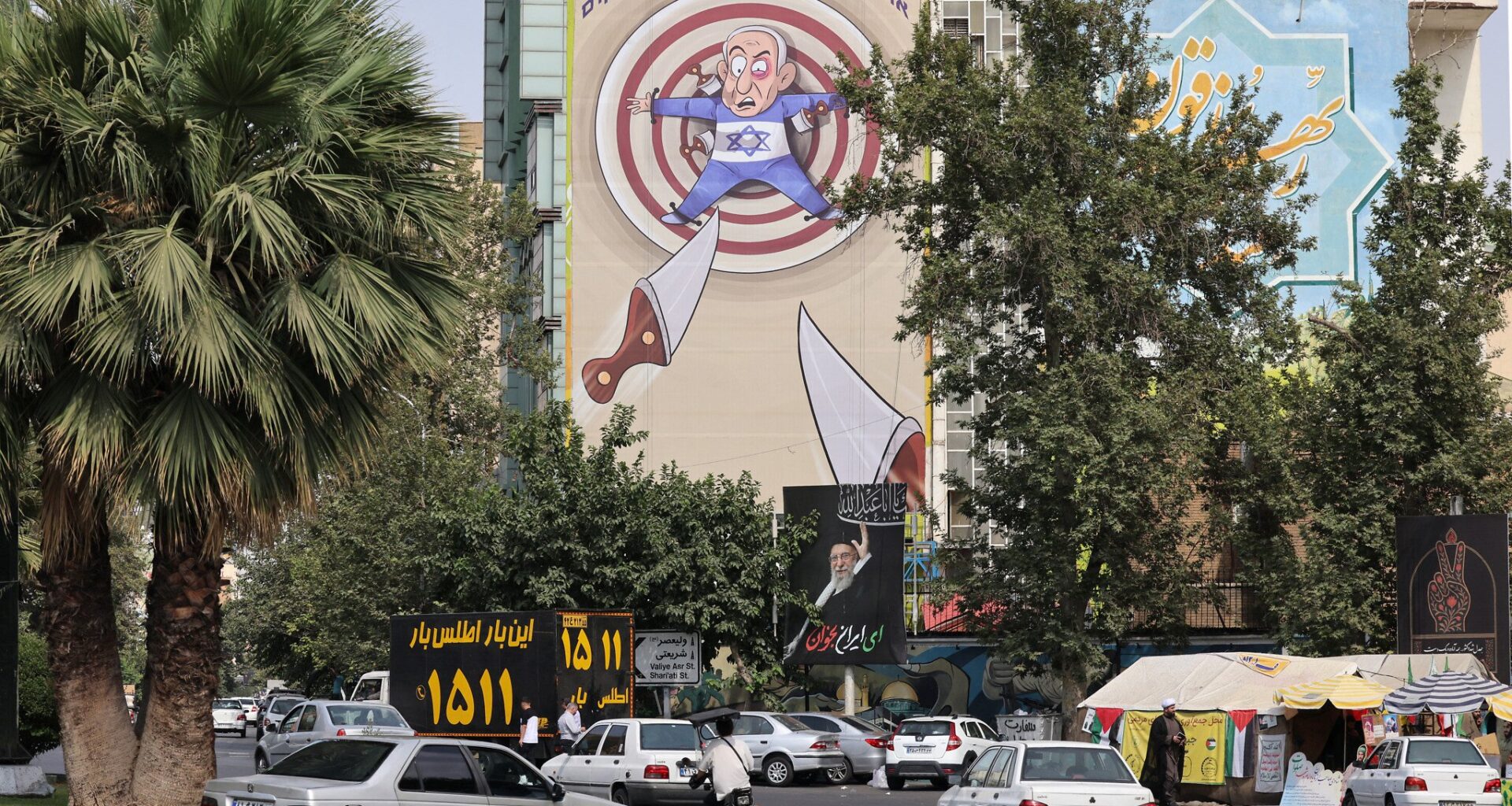DUBAI (Reuters) — Weakened by war and diplomatic deadlock, Iran’s clerical elite stands at a crossroads: defy pressure to halt its nuclear activity and risk further Israeli and US attacks, or concede and risk a leadership fracture.
For now, the Islamic Republic establishment is focusing on immediate survival over longer-term political strategy.
A fragile ceasefire ended a 12-day war in June that began with Israeli airstrikes, followed by US strikes on three Iranian nuclear sites. Israel launched the opening strike against Iran on June 13. According to Israel, the sweeping assault on Iran’s top military leaders, nuclear scientists, uranium enrichment sites, and ballistic missile program was necessary to prevent the Islamic Republic from realizing its avowed plan to destroy the Jewish state.
Both sides declared victory, but the war exposed the military vulnerabilities and punctured the image of deterrence maintained by a major Middle East power and Israel’s arch-regional foe.
Three Iranian insiders told Reuters the political establishment now views negotiations with the US — aimed at resolving a decades-long dispute over its nuclear ambitions — as the only way to avoid further escalation and existential peril.
Get The Times of Israel’s Daily Edition
by email and never miss our top stories
By signing up, you agree to the terms
The strikes on Iranian nuclear and military targets, which included killings of top Revolutionary Guard commanders and nuclear scientists, shocked Tehran, kicking off just a day before a planned sixth round of talks with Washington.
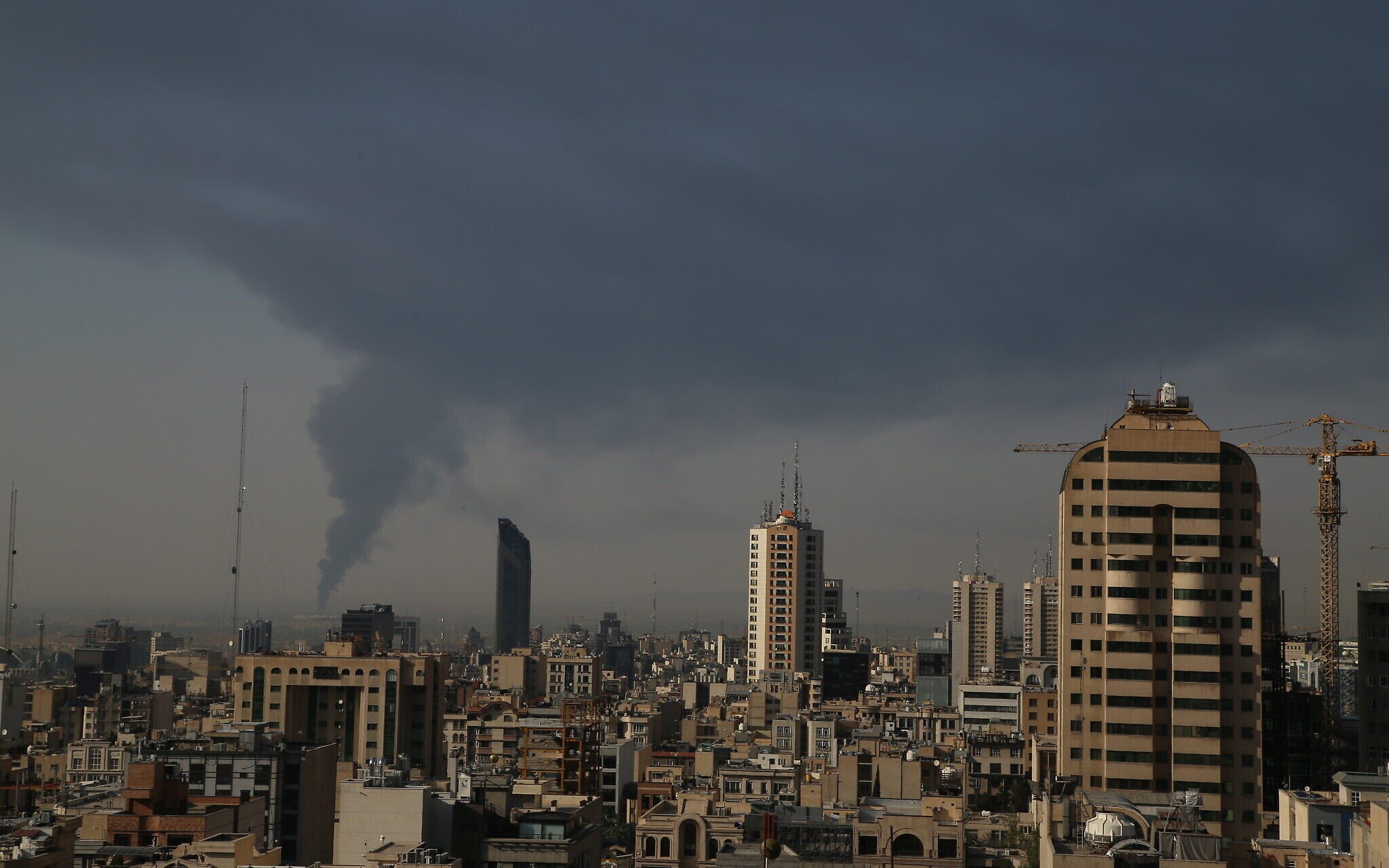
Huge smoke rises up from an oil facility after it appeared to have been hit by an Israeli strike in southern Tehran, Iran, Sunday, June 15, 2025. (AP Photo)
While Tehran accused Washington of “betraying diplomacy,” some hardline lawmakers and military commanders blamed officials who advocated diplomacy with the US, arguing the dialogue proved a “strategic trap” that distracted the armed forces.
However, one political insider, who, like others, requested anonymity given the sensitivity of the matter, said the leadership now leaned toward talks as “they’ve seen the cost of military confrontation.”
President Masoud Pezeshkian said Sunday that resuming talks with the US “does not mean we intend to surrender,” addressing hardliners opposing further nuclear diplomacy after the war.
He added, “You don’t want to talk? What do you want to do? … Do you want to go [back] to war?”
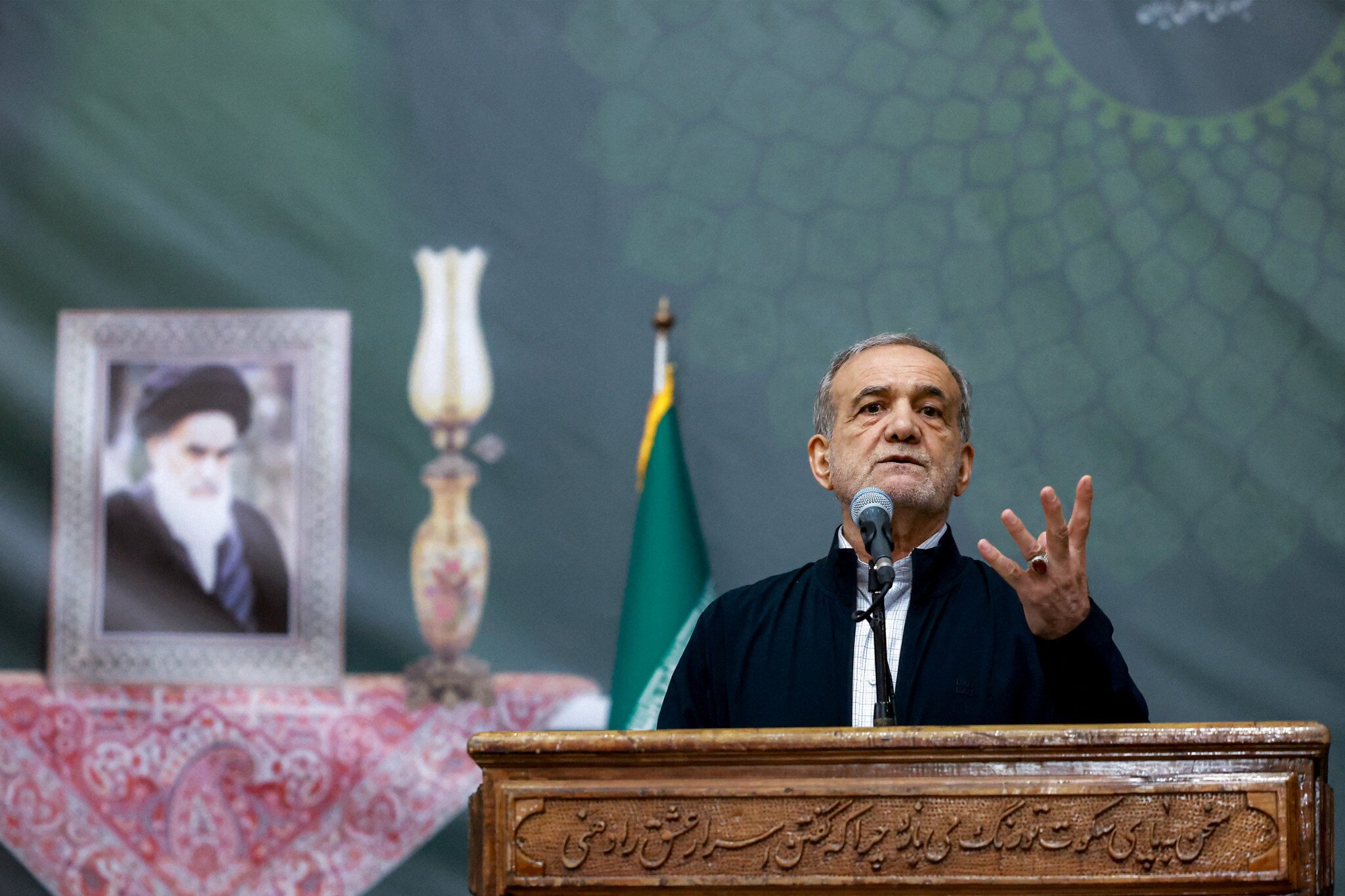
Iran’s President Masoud Pezeshkian is giving an address on the anniversary of the death of the country’s former supreme leader, Ayatollah Ruhollah Khomeini, at the latter’s mausoleum in Tehran on June 3, 2025. (Iranian Presidency / AFP)
His remarks were criticized by hardliners, including Revolutionary Guards commander Aziz Ghazanfari, who warned that foreign policy demands discretion and that careless statements could have serious consequences.
Ultimately, Supreme Leader Ayatollah Ali Khamenei holds the final say. Insiders said he and the clerical power structure had reached a consensus to resume nuclear negotiations, viewing them as vital to the Islamic Republic’s survival.
Iran’s Foreign Ministry said no decision has been made on the resumption of nuclear talks.
Dynamics and external pressure
US President Donald Trump and Prime Minister Benjamin Netanyahu have warned they will not hesitate to hit Iran again if it resumes enrichment of uranium, a possible pathway to developing nuclear weapons.
Though Iran denies seeking nuclear weapons, it enriched uranium to levels that have no peaceful application, obstructed international inspectors from checking its nuclear facilities, and massively expanded its ballistic missile capabilities. The Islamic Republic had recently taken steps toward weaponization, Israel said.
Last week, Trump warned that if Iran restarted enrichment despite the June strikes on its key production plants, “we’ll be back.” Tehran responded with a vow of forceful retaliation.
Still, Tehran fears future strikes could cripple political and military coordination, and so has formed a defense council to ensure command continuity even if the 86-year-old Khamenei must relocate to a remote hideaway to avoid assassination.
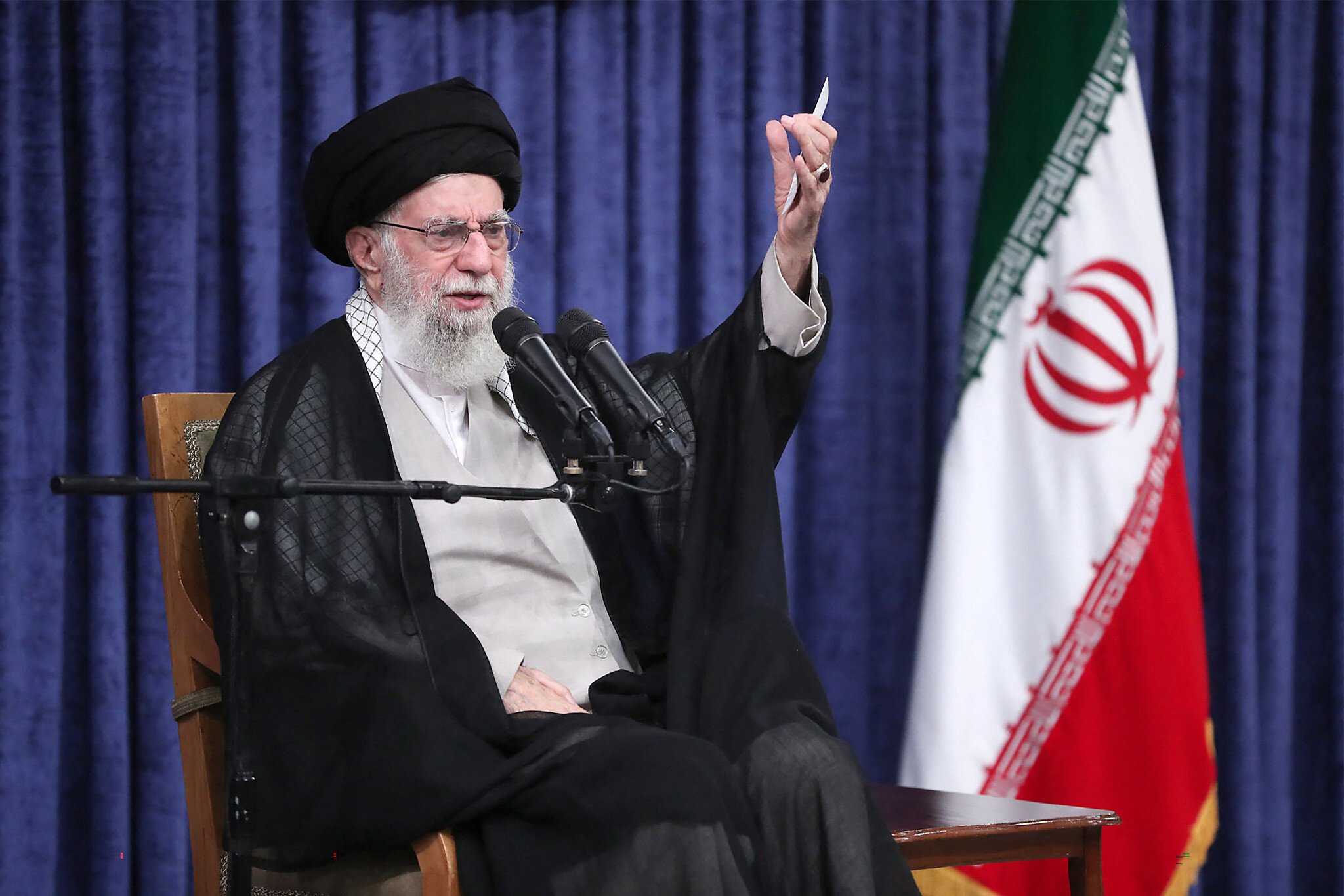
Iran’s Supreme Leader Ayatollah Ali Khamenei addresses the crowd during a meeting with the head of the judiciary and other officials in Tehran on July 16, 2025. (KHAMENEI.IR / AFP)
Alex Vatanka, director of the Iran Program at the Middle East Institute in Washington DC, said that if Iran seeks to rapidly rebuild its nuclear capacity without securing diplomatic or security guarantees, “a US-Israeli strike won’t just be possible — it will be all but inevitable.”
“Re-entering talks could buy Tehran valuable breathing room and economic relief, but without swift US reciprocity it risks a hardline backlash, deepening elite divisions, and fresh accusations of surrender,” Vatanka said.
Tehran insists on its right to uranium enrichment as part of what it maintains is a peaceful nuclear energy program, while the Trump administration demands a total halt — a core sticking point in the diplomatic standoff.
Renewed United Nations sanctions under the so-called “snapback” mechanism, pushed by three European powers, loom as a further threat if Tehran refuses to return to negotiations or if no verifiable deal to curb its nuclear activity results.
Tehran has threatened to quit the Nuclear Non-Proliferation Treaty. But insiders say this is a pressure tactic, not a realistic plan, as exiting the NPT would telegraph an Iranian race for nuclear bombs and invite US and Israeli intervention.
A senior Western diplomat said Iran’s rulers were vulnerable as never before, and any defiance was a gamble liable to backfire at a time of rising domestic unrest, impaired deterrence power and Israel’s disabling of Iran’s militia proxies in wars around the Middle East since 2023.
Mounting anxiety
Among ordinary Iranians, weariness over war and international isolation runs deep, compounded by a growing sense of failed governance. The oil-based economy, already hobbled by sanctions and state mismanagement, is under worsening strain.
Daily blackouts afflict cities around the country of 87 million people, forcing many businesses to cut back. Reservoirs have receded to record lows, prompting warnings from the government of a looming “national water emergency.”
Many Iranians — even those opposed to the Shiite theocracy — rallied behind the country during the June war, but now face lost incomes and intensified repression.
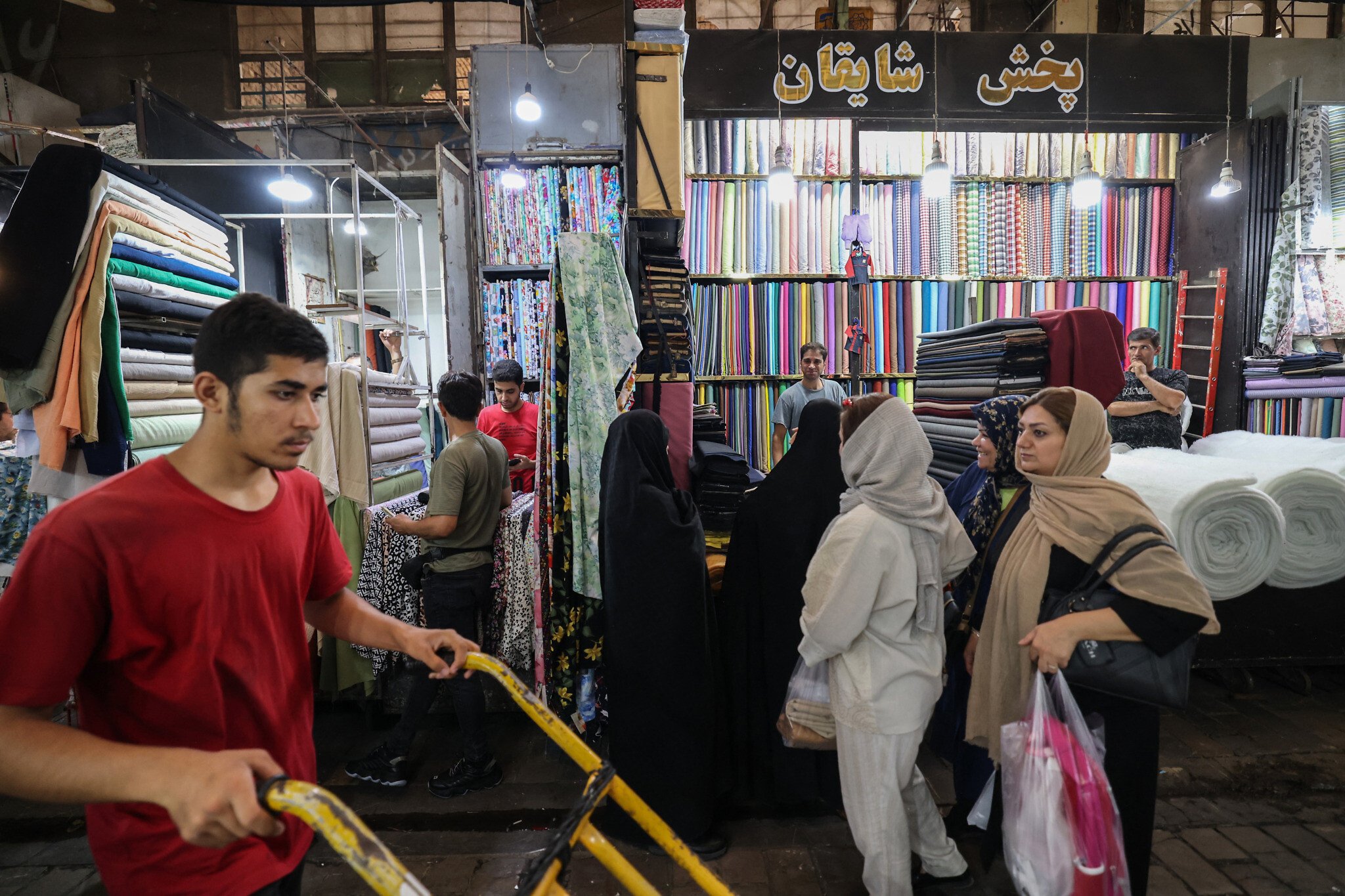
Iranians walk past shops in the Grand Bazaar in Tehran on August 13, 2025. (Atta Kenare/AFP)
Alireza, 43, a furniture merchant in Tehran, said he is considering downsizing his business and relocating his family outside the capital amid fears of further air attack.
“This is the result of 40 years of failed policies,” he said, alluding to Iran’s 1979 Islamic Revolution that toppled the Western-backed monarchy. “We are a resource-rich country and yet people don’t have water and electricity. My customers have no money. My business is collapsing.”
At least 20 people across Iran interviewed by phone echoed Alireza’s sentiment, that while most Iranians do not want another war, they are also losing faith in the establishment’s capacity to govern wisely.
Despite broad discontent, large-scale protests have not broken out. Instead, authorities have tightened security, ramped up pressure on pro-democracy activists, accelerated executions and cracked down on alleged Israeli-linked spy networks — fueling fears of widening surveillance and repression.
However, sidelined moderates have resurfaced in state media after years of exclusion. Some analysts see this as a move to ally public anxiety and signal the possibility of reform from within, without “regime change” that would shift core policies.
